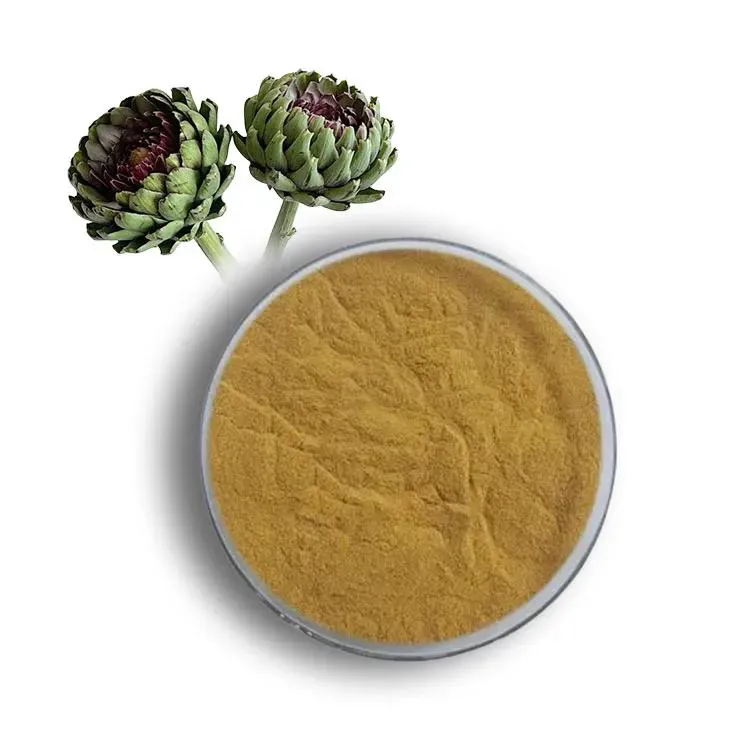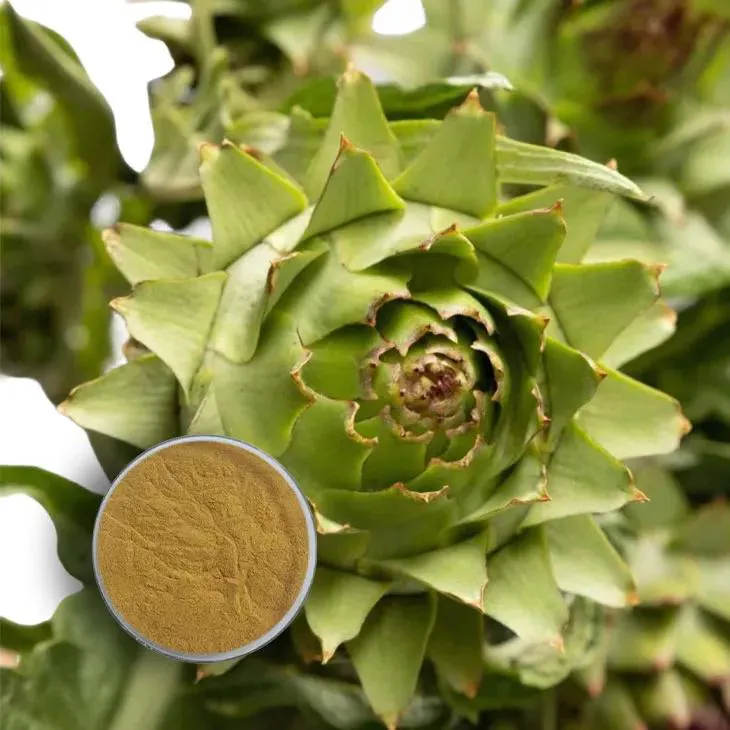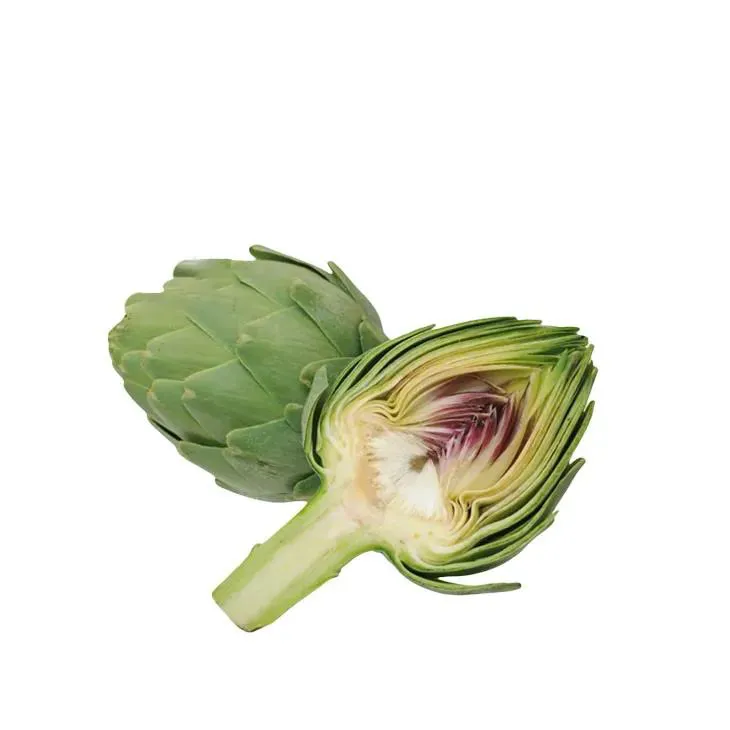- 0086-571-85302990
- sales@greenskybio.com
Does artichoke extract increase bile production?
2025-07-14

Artichoke (Cynara scolymus) is more than just a flavorful addition to Mediterranean cuisine; it’s a plant with a long history of medicinal uses rooted in traditional practices. Derived primarily from the leaves of the artichoke plant, Artichoke Extract has been studied for its potential health benefits, including its role in supporting liver function and digestive health. One intriguing hypothesis is that Artichoke Extract may increase bile production, which can have several positive effects on the digestive process. This article explores the scientific basis and practical implications of Artichoke Extract’s impact on bile production.
Understanding Bile and Its Importance
Bile is a digestive fluid produced by the liver and stored in the gallbladder. Composed of bile acids, cholesterol, phospholipids, bilirubin, and water, bile plays a crucial role in the digestion and absorption of fats and fat-soluble vitamins in the small intestine. When we consume a meal, particularly those rich in fats, the gallbladder releases bile into the digestive tract, where it emulsifies fats, making them easier to digest and absorb.
Apart from aiding digestion, bile serves as a route for the excretion of waste products from the liver, including bilirubin, a byproduct of red blood cell breakdown. Efficient bile production and flow are essential for maintaining digestive health and liver function, and disruptions in these processes can lead to conditions such as gallstones or liver dysfunction.

Artichoke Extract: Composition and Properties
Artichoke extract is rich in polyphenolic compounds such as chlorogenic acid, cynarin, luteolin, and apigenin, which contribute to its medicinal properties. Cynarin, in particular, is believed to be the active ingredient responsible for many of artichoke’s potential health benefits, including its effects on liver function and bile production.
Several studies have suggested that artichoke extract may increase bile production and secretion, potentially improving fat digestion and reducing symptoms like bloating and gas. The mechanism behind this is thought to involve the stimulation of liver cells, promoting the production of bile, and enhancing the flow of bile from the liver to the gallbladder and into the intestines.

Scientific Evidence and Mechanisms
Research on the effects of artichoke extract on bile production has yielded promising results, though the majority of studies have been conducted on animals and in vitro settings. In one animal study, artichoke extract was shown to increase bile secretion significantly, suggesting a choleretic effect (bile-stimulating effect). This choleretic action enhances the liver's ability to detoxify the body and improves overall digestive function by facilitating more efficient fat emulsification and absorption.
Moreover, the antioxidant properties of artichoke extract may contribute to its hepatoprotective effects, reinforcing liver health and function. Antioxidants in the extract can help protect liver cells from oxidative stress and damage, potentially increasing the organ’s capacity to produce bile.
Additionally, a few clinical trials involving human participants have explored artichoke extract’s benefits on digestion and liver function. For example, some studies have reported improvements in symptoms related to indigestion (dyspepsia) and irritable bowel syndrome (IBS), conditions where enhanced bile production might alleviate discomfort. However, direct measurements of bile production in response to artichoke extract in humans remain limited, highlighting a gap for future research.

Practical Implications and Usage
For individuals considering artichoke extract to boost bile production, it is often available in various forms, including capsules, powders, and liquid extracts. The typical dosage varies based on product concentration and formulation, with most supplements recommending between 300 to 640 mg of standardized extract per day, often split across multiple doses.
Incorporating artichoke extract may be beneficial for those experiencing digestive discomfort after high-fat meals, or for improving liver detoxification processes. That said, individuals with known gallbladder issues, such as gallstones or bile duct obstruction, should exercise caution and consult healthcare professionals before using artichoke extract, as increasing bile flow could exacerbate existing conditions.
Conclusion
While artichoke extract shows promise in enhancing bile production and supporting liver and digestive health, it is important to acknowledge the need for more robust human studies to fully understand its efficacy and mechanisms. Current evidence, largely extrapolated from animal studies, provides a foundation for further exploration into its potential health benefits.
As with any supplement, it is crucial to adopt a balanced approach, where artichoke extract is considered part of a holistic health regimen rather than a stand-alone solution. Alongside a balanced diet, regular exercise, and lifestyle modifications, artichoke extract could serve as a valuable ally in maintaining optimal digestive and liver health. Continued research will hopefully illuminate its full spectrum of benefits, providing clearer guidelines for therapeutic use and integrating traditional wisdom with modern science.
- ▶ Hesperidin
- ▶ Citrus Bioflavonoids
- ▶ Plant Extract
- ▶ lycopene
- ▶ Diosmin
- ▶ Grape seed extract
- ▶ Sea buckthorn Juice Powder
- ▶ Fruit Juice Powder
- ▶ Hops Extract
- ▶ Artichoke Extract
- ▶ Mushroom extract
- ▶ Astaxanthin
- ▶ Green Tea Extract
- ▶ Curcumin
- ▶ Horse Chestnut Extract
- ▶ Other Product
- ▶ Boswellia Serrata Extract
- ▶ Resveratrol
- ▶ Marigold Extract
- ▶ Grape Leaf Extract
- ▶ New Product
- ▶ Aminolevulinic acid
- ▶ Cranberry Extract
- ▶ Red Yeast Rice
- ▶ Red Wine Extract
-
Chaste Berry Extract
2025-07-14
-
Dandelion Root Extract
2025-07-14
-
Propolis Extract Powder
2025-07-14
-
Rose Hip Extract
2025-07-14
-
White Willow Bark Extract
2025-07-14
-
Hesperidin
2025-07-14
-
Artichoke Extract
2025-07-14
-
Curcuma Longa Extract/Turmeric extract
2025-07-14
-
Polygonum multiflorum extract
2025-07-14
-
Europen Bilberry Extract
2025-07-14




















